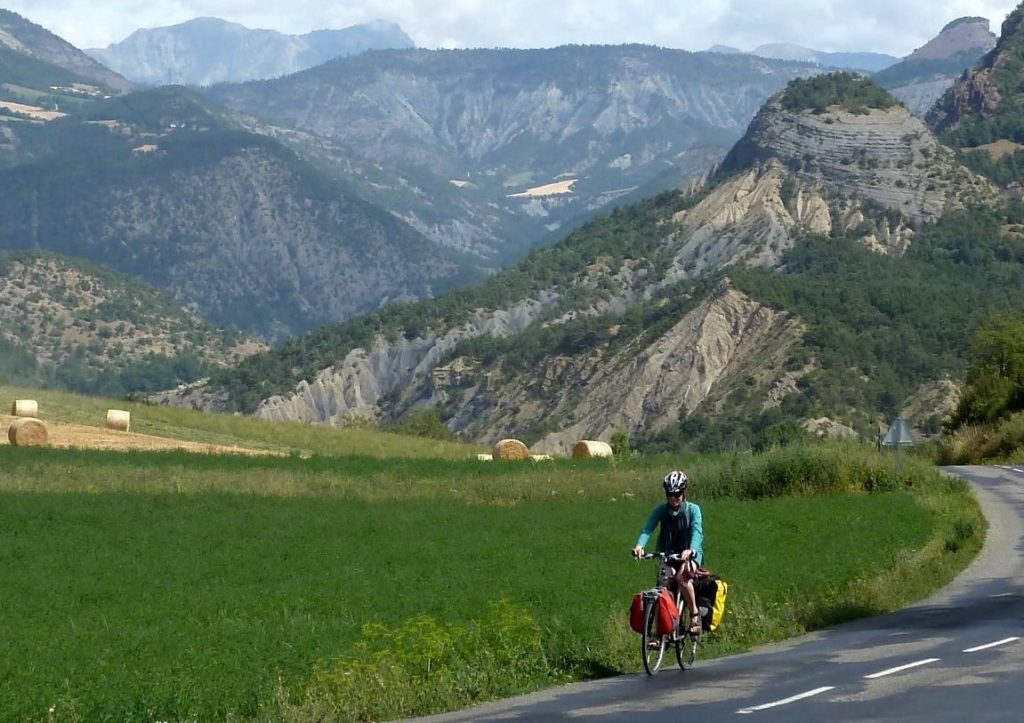June 18, 2022 - And so, the time has come to say goodbye once gain. What a week it has been, and with an emphasis on cycling tourism, bike economics and urban mobility innovation, the final days of VC22 certainly had it all! After another jam-packed day of all things cycling,

Thursday was topped off with a touch of glamour, as the Velo-city dinner and inaugural ECF Awards took place at the stunning Ljubljana Castle. Yet still, after a night of dancing, discoing and some questionable singing, the Velo-city community was back for more on Friday morning!
Struggled to be in two places at once? So did we! But never fear, your Daily Report team is back for this year’s final hoorah, having worked together to gather the good, the great and downright extraordinary of the last two days of VC22!
Plenary 5: The growing Economic Benefits of Cycling Tourism
The Thursday morning plenary session witnessed a heated debate on tourism. Discussion centred on how cycling tourism can reduce the harmfulness of the tourism sector and shift gear towards a more sustainable future.
ECF President Henk Swarttouw’s opening comments declared cycling tourism, in the form of the EuroVelo cycle route network, as “one of the pillars of ECF.”
Addressing delegates remotely, Alessandra Priante, Director of Regional Department for Europe at World Tourism Organization UNWTO, passionately discussed the many economic and sustainable benefits cycling tourism brings to both urban and rural areas.
Alex Crevar, sustainable travel journalist, also claimed cycling to be “a great equaliser” stating that “sustainability” is an overused term in our society. Calling for more responsible forms of tourism, Crevar said, “You can’t just lay down your beach towel and hope someone is looking after sustainability.”
Echoing previous panellists, Blaz Kurnik, head of the EEA Climate Group and Camille Thomé CEO of Vélo & Territoires addressed the need for a change in our approach towards tourism and for shifting the focus to domestic tourism.
Bringing a different perspective, Petra Stusek, Managing Director of Ljubljana tourism, argued that tourism was already changing pre-pandemic and if managed properly, has the potential to spur local economic growth.
Joining calls from fellow panellists for the increased inclusion of local people, Thomas Larsen Schmidt, President of International Mountain Bike Association Europe, also cited the importance of building local communities in rural areas for cycling tourists and locals alike to enjoy.
In the end, we all agree with Priante, who signed off saying that: “If we want to change, we have to bring a little bit of that cycling state of mind with us.”
Session highlights
Pushing for change: National Strategies brought national transport ministry officials from five European nations together to present the state of their national cycling strategies. Martin Eder from Austria explained how, “ECF showed us all that if a state has a national cycling strategy, then the overall number of cycling increases.” Indeed, the ECF National Strategy overview map needs some updating! The map was referenced several times by the attending officials, with both Belgium and Spain having introduced new national plans in the time since its publication. Such progress in such a short space of time is what we like to see!
On the main stage, a session on road safety had contrasting case studies; from a successful Vision Zero policy in Helsinki detailed by Martti Tulenheimo, to shocking statistics from Brazil provided by Ana Carboni (polling results showed 80% of participants knew someone that had lost their life on the road). In the end the argument for more traffic calming is physics – with greater kinetic energy comes greater potential of serious injury, or worse, for road victims.
Over at the yellow room, five speakers elaborated on data, figures and trends related to cycling tourism. They provided analytical insight into the profile and preferences of cycling tourists, usage, and economic impact. The unanimous conclusion is: cycling tourism is definitely on the rise, as evidenced from the usage on EuroVelo routes. Although, proper data gathering is crucial in forming sound investment strategies and business decisions. As pointed out by Laurent Guennoc from Eco-Counter, ‘’EuroVelo routes have experienced a cycling explosion between 2020-2022’’ and 2022 is poised to break further records. He also added what is the point of collecting data: “If we don’t count, it doesn’t count”.
On Friday morning, the red room was host to a very important topic in contemporary cycling advocacy – the importance of integrating cycling into the Trans-European Transport Network (TEN-T) guidelines. Speakers Radosław Lesisz, Giulia Cortesi, Maurits Lopes Cardozo and Marta Orihuel each made strong cases, using both good and bad practice examples of infrastructure projects that included and missed out on opportunities. The key takeaways from the session were straight forward: when integrating cycling into a project, plan early, hire consultants and review strategically. But the final message was clear: EuroVelo and cycling, the European cycle route network, needs to be held in the same esteem as other modes of transport and included in Europe’s flagship transport network!
Read the full report here
















